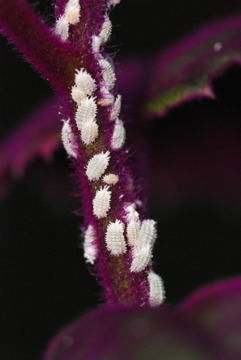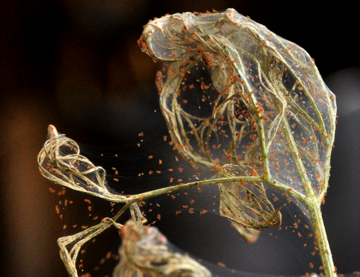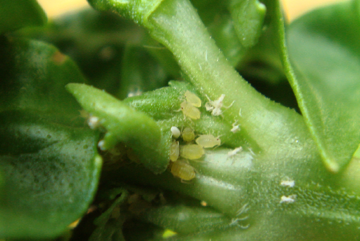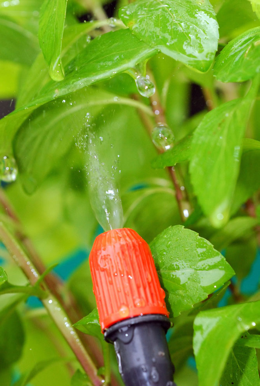Keeping Pests In Check With Horticultural Oils
Pest control is an issue faced by all gardening enthusiasts. If you are a home gardener, you may be understandably hesitant to use chemical insecticides on your plants – especially if you have pets or young children. For a safe alternative, try using horticultural oils instead.
What are horticultural oils?
Many oils of plant and mineral origin are used in horticulture and agriculture for pest management. Known collectively as ‘horticultural oils’, these oils are permitted for use in organic gardening and farming. Look out for products labelled as summer oil, superior oil and white oil.
When applied properly, horticultural oils are low in toxicity, and will not affect non-target organisms as well as beneficial predators. They also disperse quickly in the environment.
How do they work?
Horticultural oils generally act as contact pesticides, and attack pests in many different ways. They can successfully kill small, soft-bodied, sucking pests such as aphids, scale, whiteflies, mealy bugs, leaf miners and spider mites by suffocation. The sprayed oil covers their bodies and clogs up their breathing pores. Horticultural oils do not kill via poisoning and hence, pests cannot develop resistance towards them.
Oils can also dissolve and soften the exoskeletons of some pests, causing dessication and death. Besides killing adult pests, horticultural oils interfere with various physiological processes such as molting and the laying and hatching of eggs. They may also help to reduce the incidence of powdery mildew on some plant species. Do note, though, that horticultural oils are not effective on all plant pests. They do not affect large chewing insect pests, which include beetles, snails and large caterpillars.
What are horticultural oils made of?
Horticultural oils derived from mineral sources consist of a mixture of hydrocarbons and their derivatives, which are obtained from fractional distillation of petroleum. Modern mineral horticultural oils are tailored to evaporate and dissipate quickly from sprayed plants, so that they can be used on actively-growing plants.
There are also horticultural oils that are derived from plants. The best known is neem oil, which is pressed from the seeds of the neem tree. Plant oils are a renewable resource and may contain additional insecticidal compounds. Many of these products have an emulsifier (i.e. a detergent-like substance) and spreader added to them, which allows them to mix more easily with water and stick better to plant surfaces, respectively.
Can I mix my own horticultural oils at home?
There are many recipes online for concocting pesticides using vegetable cooking oils. However, these oils are not officially registered as pesticides for use in the garden, and a wrongly concocted mix may harm plants. You should use such DIY home-made remedies with care. Apply them on a small part of a plant first to see if the plant exhibits phytotoxicity, which is an adverse reaction where leaves become severely damaged. If there is no such reaction, you can spray the entire infested plant.
Can I use horticultural oils on edible plants?
It is safe to spray your edible plants with these organic pesticides, as long as you are mindful of the withholding period for various horticultural oils stated on the product label. Withholding period refers to the minimum length of time that must pass between the application of the chemical and harvesting. Most mineral and vegetable horticultural oils have a very short withholding period.
By Wilson Wong
Dos and Don’ts for using horticultural oils
Do
- Follow label directions to the letter, and use the lowest possible concentration.
- Keep your oil mixture agitated at all times to prevent separation.
- Spray in the late afternoon or early evening when weather is cooler and non-target, beneficial insects are less active.
- Apply oils only when target pests are present, and be sure to cover the target insect completely. If necessary, prune plants to reduce pest load.
- Repeated sprays at intervals are required to eradicate pest populations.
Don’t
- Don’t apply on drought-stressed plants. Also, don’t apply when the plant foliage is wet or when rain is expected.
- Don’t apply in combination with sulfur or sulfur-containing pesticides.
- Don’t allow oils to drift onto water bodies as it can cause harm to aquatic organisms.
- Don’t use horticultural oils on plants with furry, hairy and delicate leaves. Common plants that are sensitive include African violets and various conifer and fern species.

Horticultural oils can be used on mealy bugs, which appear as cottony masses on plants. They are common sucking pests that affect a wide range of plants.

Horticultural oils can be used on spider mites. These are tiny sucking pests, whose fast reproductive rate allows them to become resistant to many synthetic pesticides.

Horticultural oils can be used on aphids. These are common sucking pests that attack tender new growth of plants, and cause the new leaves to become deformed and misshapen.

Be sure to spray all parts of an infested plant, especially the leaf undersides, until the plant is covered with oil. However, make sure it is not dripping wet, to avoid contamination of the soil below.
Have views or comments on this article? Let us know via this form. If you would like to give us feedback on any other areas relating to our parks and gardens, please submit via https://www.nparks.gov.sg/feedback





Li-San 6/26/2015 9:01:07 AM